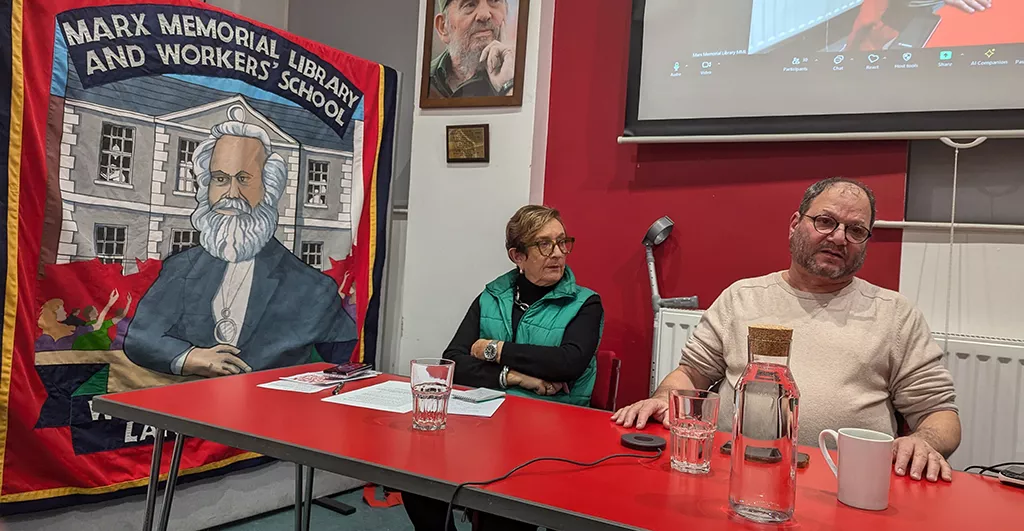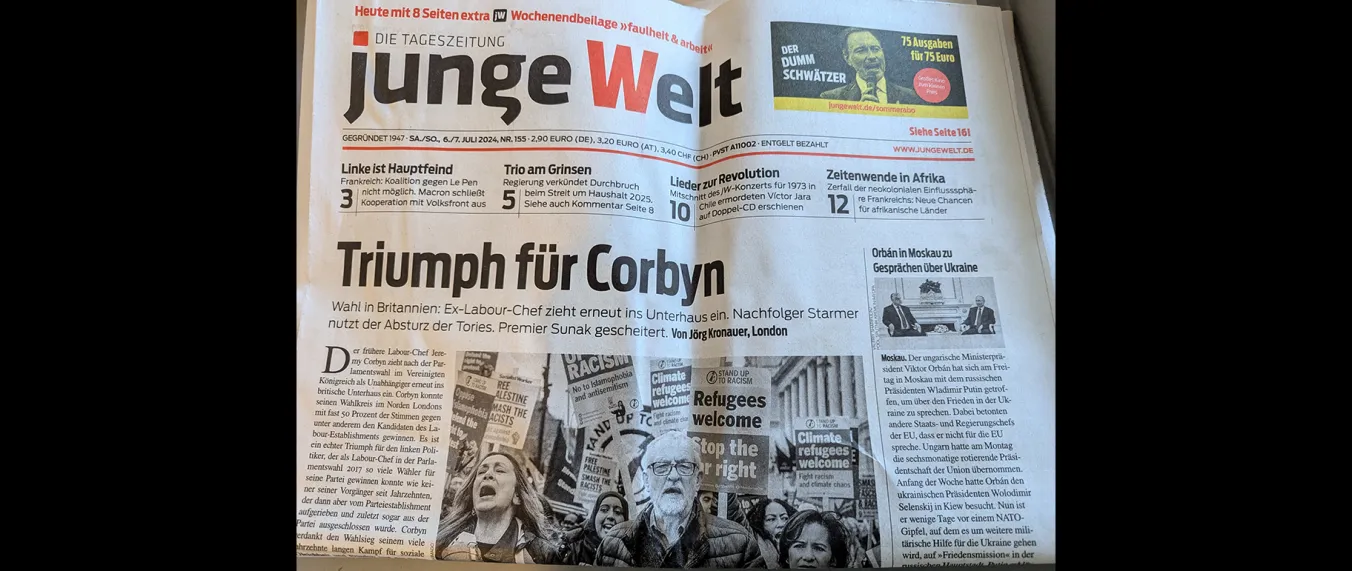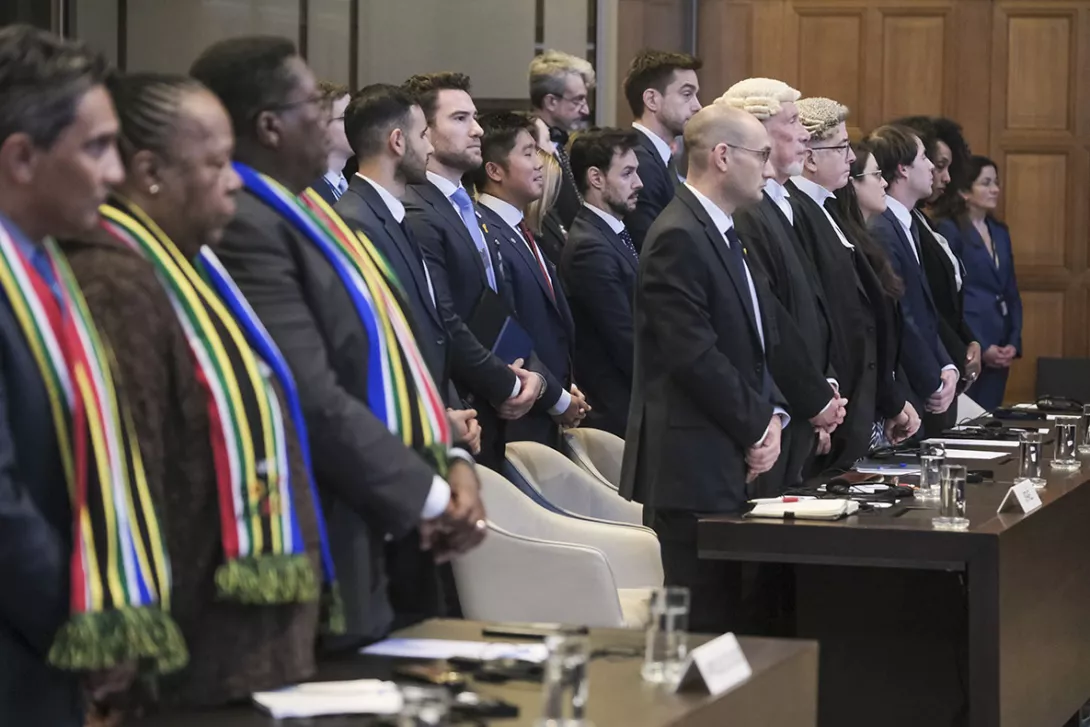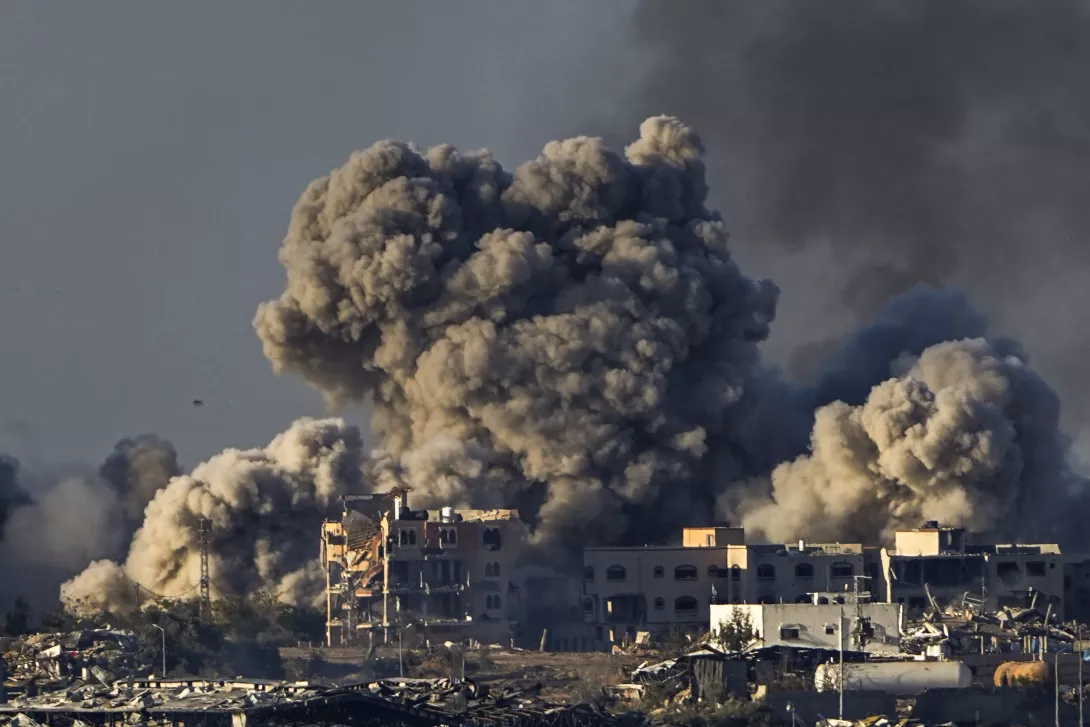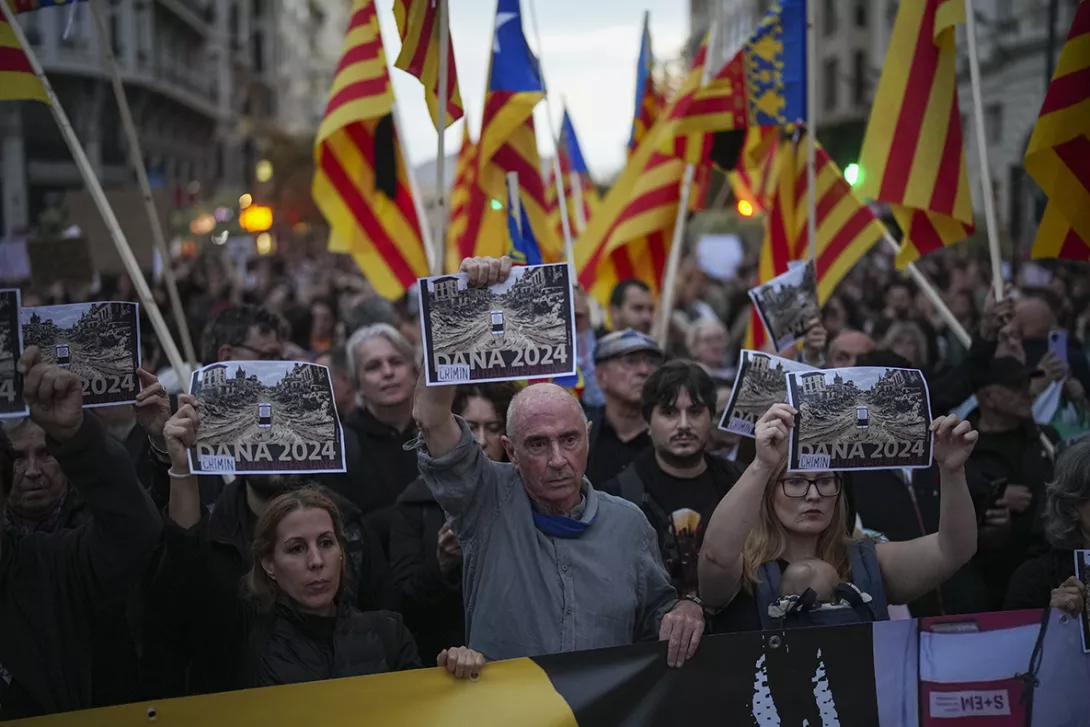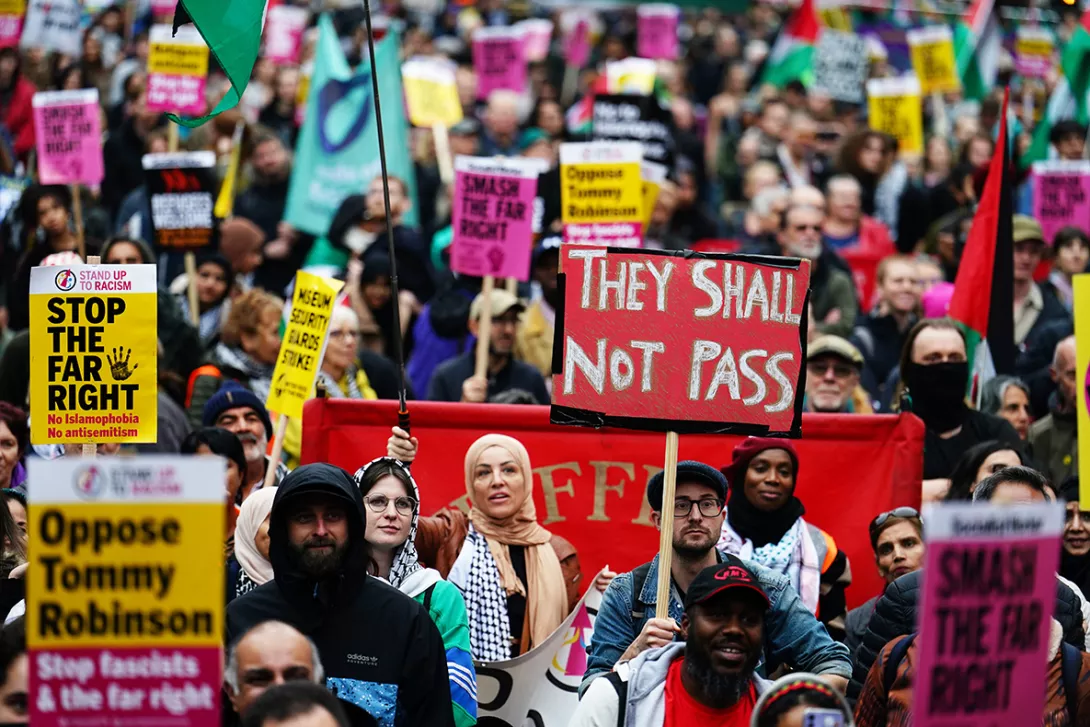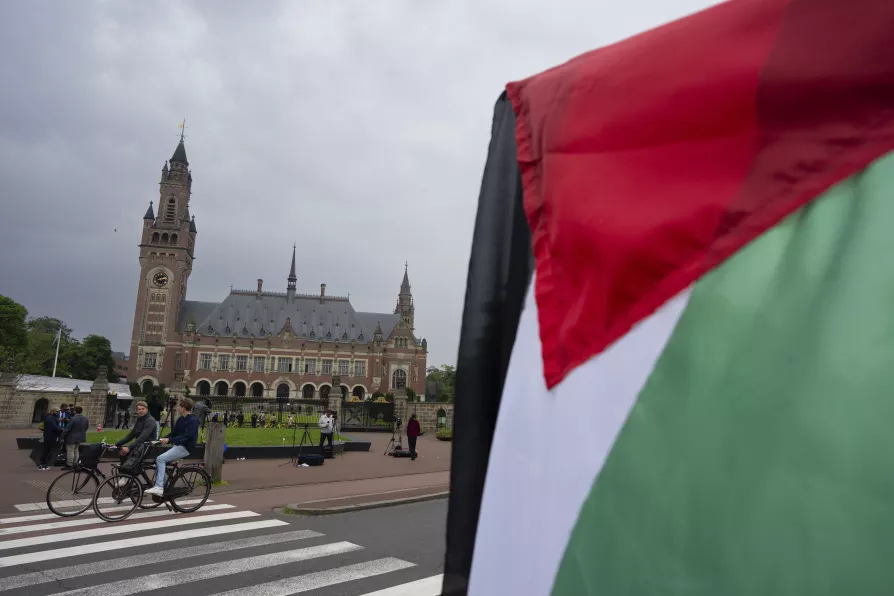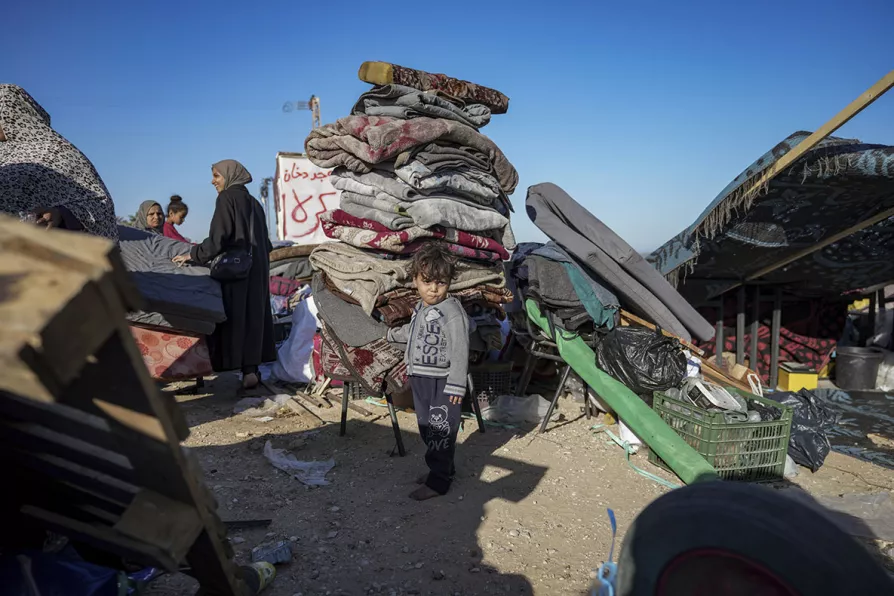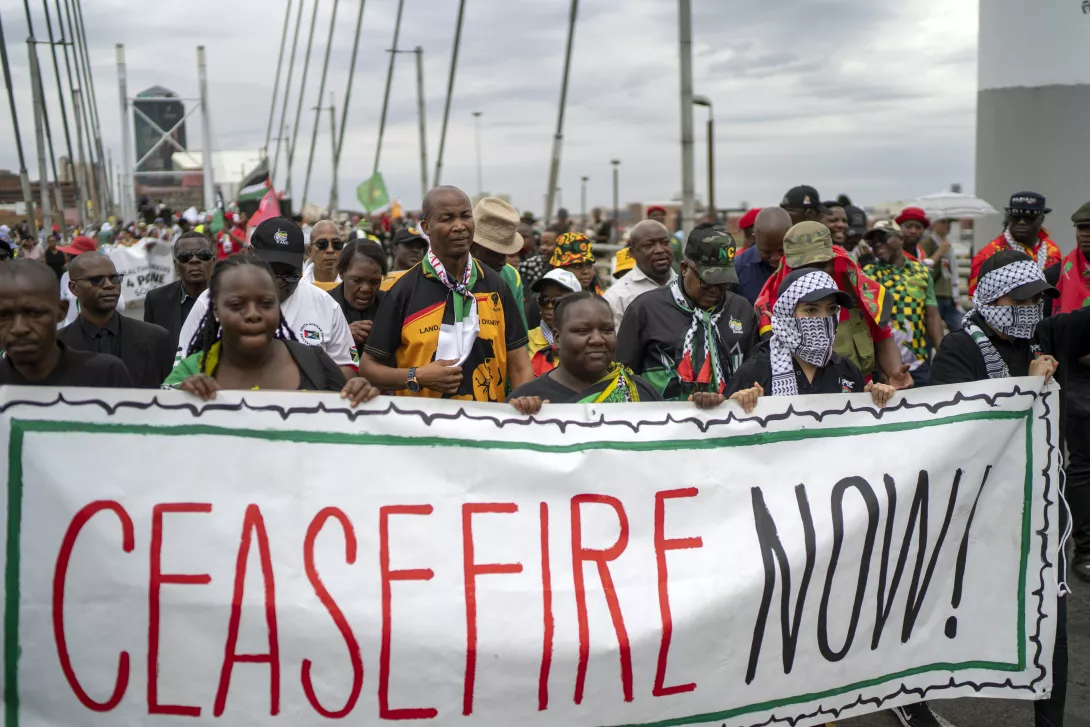
SOUTH AFRICA’S genocide case against Israel has its first hearings at the International Court of Justice (ICJ) tomorrow.
The case may have lasting repercussions. This is so whatever the outcome, though Israel is sufficiently worried about that to have decided, unusually, to fight it in court.
South Africa says it is determined to put a stop to the slaughter in Gaza, where Israel’s invasion has so far killed more than 22,000 people — over 1 per cent of the population. The scale of killing is terrifying — equivalent to an invader of Britain killing over 700,000 people in a couple of months.
The court cannot stop it. Initial hearings may order Israel to withdraw — such an order was issued to Russia over the Ukraine invasion in 2022. But as that example shows the ICJ has no effective means to enforce compliance.
As for a final ruling on genocide, this could take years, looking at the glacial progress of cases like that against Myanmar for the ethnic cleansing of the Rohingya. The mass mobilisations for peace remain the most effective means of campaigning for a halt.
So why is the case important?
First because of the power of the testimonies themselves and Israel’s being forced to respond to them.
South Africa alleges that multiple statements by Israeli officials demonstrate the intent to kill civilians and displace Palestinians en masse.
As Israel’s own left has long warned, such extremist language is now par for the course, yet a culture of silence surrounds it among Israel’s Western allies.
When Israel’s ambassador to Britain Tzipi Hotovely said her government would never tolerate a Palestinian state, Foreign Secretary David Cameron asked us not to “put too much weight on one interview.” Yet she was reiterating a position repeatedly stated by Israel’s prime minister, politely ignored by Western powers paying lip service to a two-state solution while the steady colonisation of Palestinian land makes a mockery of it.
Worse still are descriptions of Palestinians as “animals,” assertions that “there are no innocent civilians in Gaza,” that “Gaza and its people must be burned,” emanating routinely from Israeli parliamentarians, military chiefs and even the president. The trial will force Israel to own or disown this venomous rhetoric in the public eye.
Second, there is symbolism in South Africa, a country that liberated itself from apartheid, leading the charge to hold Israel — a state whose systematic oppression of Palestinians has been characterised as apartheid by Amnesty and Human Rights Watch — accountable for its crimes.
Apartheid South Africa’s long alliance with Israel, and its history of diplomatic and military support from the West analogous to that given to Israel today, give this symbolism added force.
For this court case will be watched. For decades international courts have been undermined by the perception that they only prosecute Africans (a charge levelled at the International Criminal Court) or rubber-stamp victors’ justice while letting war criminals from the winning side off (the Yugoslavia tribunals).
This is a test case in which South Africa, a member of the Brics group of developing countries seeking to challenge centuries of Western domination, challenges war crimes facilitated by the West. If the court concludes, with US Secretary of State Antony Blinken, that the charges are “meritless,” the global South will draw its own conclusions.
Britain is on the wrong side in this conflict. It arms and backs Israel against Palestine, as internationally it aids and abets the United States in trying to maintain world hegemony for a handful of rich nations.
It needn’t be, and in South Africa’s invitation to Jeremy Corbyn — whom its government describes as one of the “senior political figures from progressive parties and movements” it has asked to give evidence — we get a reminder that his character assassination at home has not dented his international stature, and a glimpse of the better Britain we need to build.
